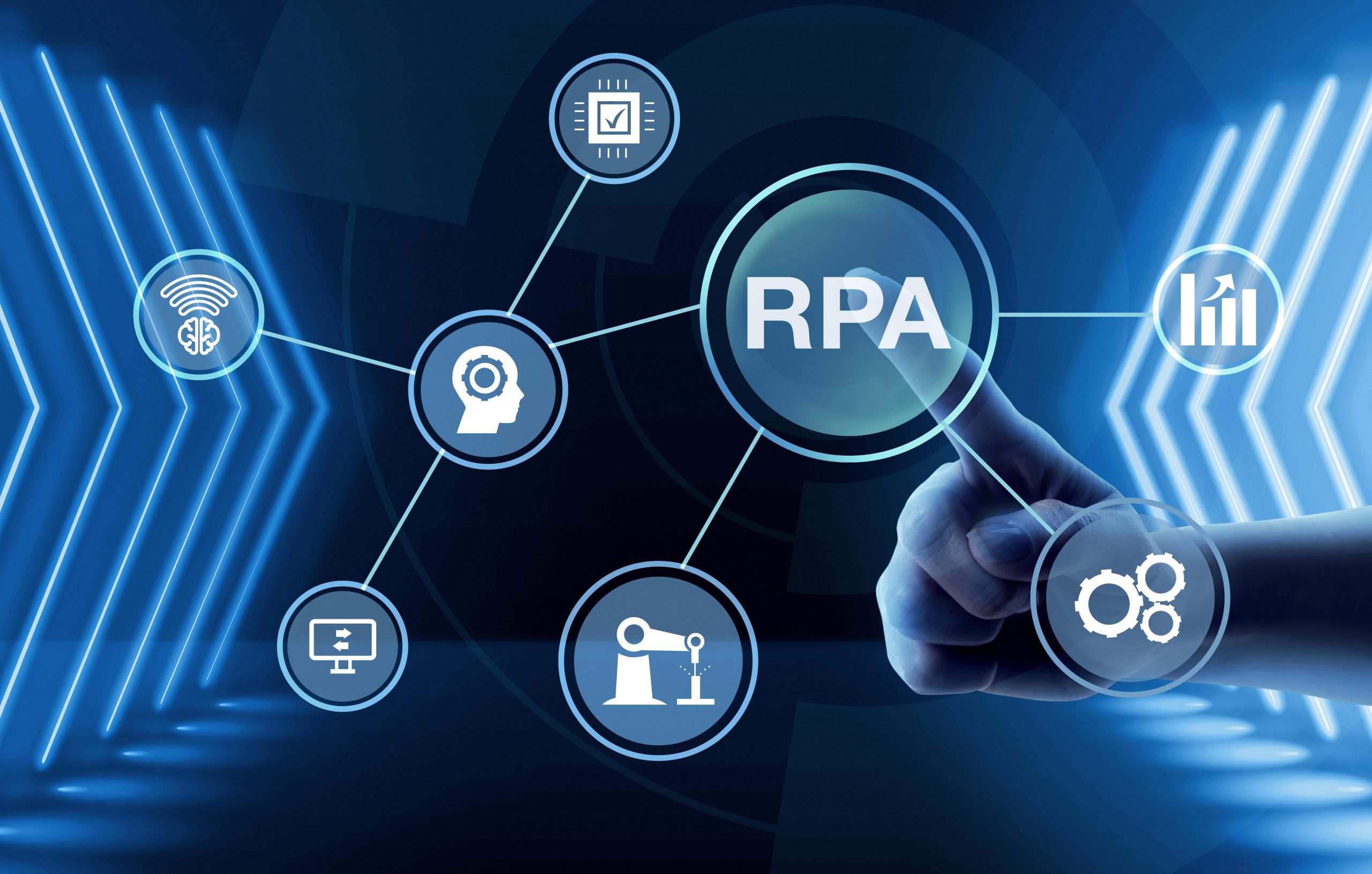Robotic Process Automation (RPA) is a technology that continues to rapidly transform the banking industry. This blog will explore the top 8 RPA use cases in the banking industry, which are proving instrumental in transforming operations and boosting efficiency.
What is Robotic Process Automation?
Robotics Process Automation or RPA can be defined as the deployment of robotic applications to supplement or replace manual processes in the financial sector. RPA helps banks and financial institutions automate repetitive tasks, such as completing keystrokes, navigating systems, extracting data, and performing other actions of interacting with software and digital systems. This enables employees to focus on more critical and complex tasks pertaining to different areas.
The Impact of RPA in Banking Industry
The banking and finance sector has been growing exponentially in recent years, and the implementation of technological advancements is picking pace as well. To make the RPA more effective, artificial intelligence capabilities are added to facilitate understanding of human language, recognize emotions and adapt to data in real-time. This has resulted in faster, more secure, and more reliable services and solutions.
The banking industry has a lot of repetitive, rule-based tasks – making it the perfect environment for RPA. By applying RPA, banks can boost their operations efficiency, cut costs, and improve customer experience. Some of the use cases of RPA in the banking industry are mentioned below.
1. Fraud Detection
One of the most critical RPA use cases in the banking industry is fraud detection. RPA bots can analyze vast amounts of transaction data to identify any unusual patterns, thus enabling banks to detect and prevent fraudulent activity in real time.
2. Customer Service
Another critical area where RPA is making a significant impact is customer service. As customer expectations continue to grow, RPA is helping banks to meet and exceed these expectations. Bots can handle routine inquiries, freeing up human agents to handle more complex customer issues. This efficient work distribution improves the speed and quality of responses. For example, when a customer submits a query online, RPA bots can instantly provide an automated response, indicating that the inquiry was received and is being processed.
3. Loan Processing
Loan processing is often a complex procedure involving several steps such as credit checks, document verification, and compliance checks. RPA can significantly enhance this process by automating some tasks. For instance, bots can be programmed to gather information about a customer’s credit history quickly, reducing the time it takes overall to approve or reject a loan application. Furthermore, the automation of document verification and compliance checks eliminates the possibility of human error, increasing the reliability of the loan approval process.
4. Account Opening
Opening a new account involves several steps, which can be quite time-consuming. RPA can speed up this process significantly. Bots can be programmed to auto-fill forms using customer-provided data, verify documents, and conduct background checks. This reduces the time it takes to set up an account, thus improving customer satisfaction. RPA helps eliminate errors that might occur during data entry, ensuring the accuracy of customer information.
5. Compliance Reporting
Compliance is a vital part of banking operations. Banks need to comply with a range of regulations, which involves producing regular reports. RPA can simplify this process significantly. Bots can be programmed to collect and organize data, fill out reports, and even submit them to regulatory bodies. This not only reduces the workload of compliance officers but also minimizes the chance of errors that might result in regulatory penalties.
6. Trade Finance
Trade finance is another area where RPA is making significant strides. Bots can be programmed to perform document checks, identify discrepancies, and ensure the accuracy of financial documents. This automation not only speeds up the trade finance process but also reduces the likelihood of costly errors. Banks can thus ensure smoother and more efficient trade operations, leading to increased customer satisfaction and profitability.
7. KYC Process
The Know Your Customer (KYC) process is a crucial part of banking operations aimed at preventing fraud. It involves verifying the identity of customers and assessing their suitability. RPA can streamline this process by automatically gathering and verifying necessary customer documents. This reduces the time it takes to complete the KYC process, enabling banks to onboard customers more quickly.
8. Data Migration and Management
Finally, RPA is playing a critical role in data migration and management. Banks often need to move data between systems, a process that can be both time-consuming and error-prone. However, bots can seamlessly move data, validate data integrity, and manage databases. This not only ensures the accuracy of data migration but also saves a significant amount of time.
The above RPA use cases in the banking industry exemplify how automation technology is transforming the way banks operate. By adopting RPA, banks can significantly improve their operations, reduce costs, and enhance their customer experience. As the industry continues to strive for increased efficiency and accuracy, RPA stands as a shining beacon of progress.
Frequently Asked Questions (FAQs)
Q What is RPA in banking?
A: RPA or Robotic Process Automation in banking refers to the use of software bots to automate repetitive, rule-based tasks, thereby increasing efficiency and accuracy. Through the use of digital technologies, banks can streamline their processes, reduce operational costs, and deliver superior customer service.
Q: How does RPA help in fraud detection?
A: RPA helps in fraud detection by analyzing vast amounts of transaction data to identify any unusual patterns. This enables banks to detect and prevent fraudulent activity in real-time.
Q) How does RPA improve loan processing?
A: RPA improves loan processing by automating tasks such as credit checks, document verification, and compliance checks, thereby reducing time and errors associated with manual processing.
Q) Can RPA be used for compliance reporting in banks?
A: Yes, RPA can simplify compliance reporting in banks by collecting and organizing data, filling out reports, and even submitting them to regulatory bodies.
Q) What is the role of RPA in data migration and management in banking?
A: Data migration is a huge activity in the banking industry, with multiple risks and compliance checks. RPA bots can seamlessly move data between systems, validate data integrity, and manage databases, making them invaluable for data migration and management in banking.





